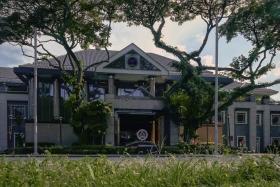Singapore moves up to third in ranking of least corrupt nations
Singapore has moved up three notches to third spot in an annual ranking of countries deemed to have the least corruption in the public sector, with Denmark and New Zealand ahead of it.
The Republic scored 85 on graft watchdog Transparency International's 2018 Corruption Perceptions Index, which uses a scale that goes from zero, for highly corrupt, to 100, for very clean.
The index released yesterday also showed that most countries continued to fail in reining in corruption significantly.
Similar to 2017, more than two-thirds of the countries scored below 50, with an average score of only 43.
Since 2012, only 20 countries, including Estonia and Ivory Coast, have significantly improved their scores, while 16 have significantly declined, including Australia, Chile and Malta, noted Transparency International.
It also highlighted that the US had dropped out of the top 20 countries on the index for the first time since 2011. It scored 71, down four points.
"The low score comes at a time when the US is experiencing threats to its system of checks and balances as well as an erosion of ethical norms at the highest levels of power," Transparency International said.
Singapore got 85, improving on its 2017 score of 84, and tying with Finland, Sweden and Switzerland for third spot. Leader Denmark scored 88, and New Zealand 87.
Norway was in seventh place with a score of 84.
Corrupt Practices Investigation Bureau (CPIB) director Denis Tan said Singapore's public service "continues to be recognised as one of the most efficient and cleanest in the world".
Singapore's good standing is also attested to by other indicators, the CPIB noted.
In the Political and Economic Risk Consultancy's 2018 Report on Corruption in Asia, Singapore is the least corrupt country in the region, a position it has held since 1995, the CPIB said.
Get The New Paper on your phone with the free TNP app. Download from the Apple App Store or Google Play Store now


